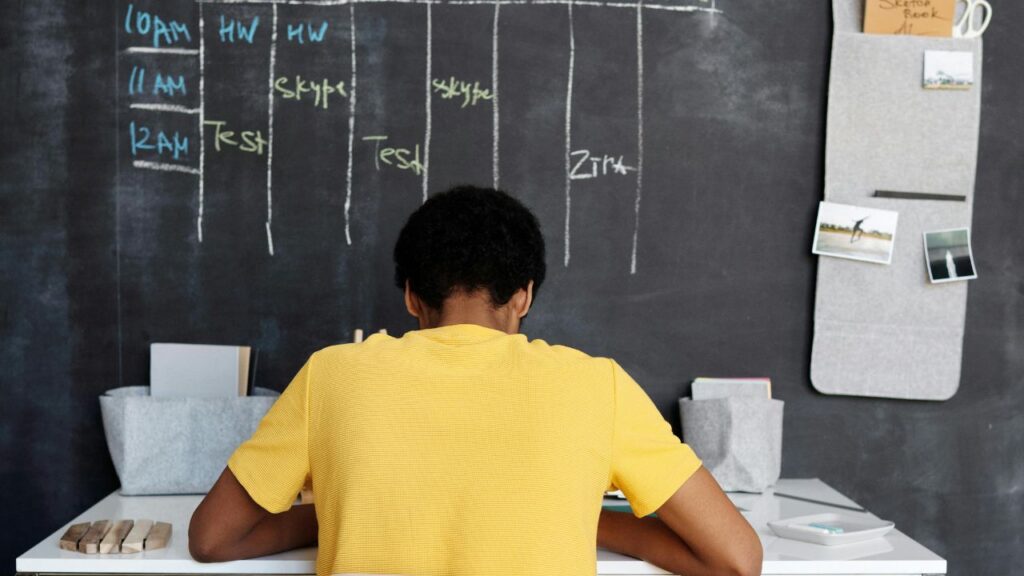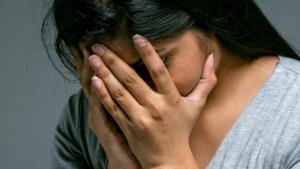Teenagers today juggle school workloads, social pressures (both online and off), sports or jobs, and a 24/7 newsfeed. It’s no surprise stress is high. Recent CDC data show 4 in 10 U.S. high school students reported persistent feelings of sadness or hopelessness in 2023, and about 1 in 5 seriously considered attempting suicide, all sobering indicators of distress in the teen years.
Why Are Teens So Stressed Right Now?
- Sleep debt is massive. In 2023, only ~23% of high schoolers got 8+ hours of sleep on school nights, well below the recommended 8-10 hours for adolescents. Sleep shortfalls are tied to worse mood, attention, and stress reactivity.
- Social media is nearly universal. Up to 95% of 13–17-year-olds use social platforms, and over one-third report using them “almost constantly.” While social media can connect teens, heavy use can also elevate stress, comparison, and disrupted sleep.
- Post-pandemic strain lingers. While some indicators improved from 2021 to 2023, overall levels of poor mental health remain high, especially for girls and LGBTQ+ youth.
Signs of Unhealthy Stress in Teens
Stress shows up emotionally and physically. Watch for:
- Irritability, mood swings, or withdrawal from friends/activities
- Trouble sleeping or big changes in sleep/appetite
- Headaches, stomachaches, or general “not feeling well” without a clear medical cause
- Trouble concentrating, falling grades, skipped assignments
- Talk of feeling overwhelmed, hopeless, or “numb”
These patterns, especially if they persist for two weeks or more, are cues to check in and consider professional support.

What Actually Helps
- Prioritize sleep. Aim for 8-10 hours nightly; keep regular bed/wake times and limit phones before bed. Adequate sleep is linked with lower prevalence of poor mental health and suicide risk indicators in teens.
- Tame the scroll. Co-create screen-time guardrails (especially evenings) and curate feeds. The U.S. Surgeon General advises families and schools to take steps that reduce potential harms from social media exposure.
- Move the body. Regular physical activity improves mood and stress tolerance, and, like sleep, is associated with lower mental-health risk in national teen data.
- Boost connection. High parental monitoring (knowing where teens are, who they’re with, setting consistent expectations) and school connectedness correlate with better mental-health outcomes. Small rituals, like shared meals, rides, and quick day check-ins, go a long way.
- Skills-based therapy. Cognitive Behavioral Therapy (CBT), behavioral activation, mindfulness/grounding, and family-informed approaches give teens practical tools for managing worry, rumination, perfectionism, and avoidance.
How Parents Can Start the Conversation at Home
Try open questions (“What’s been hardest this week?”), reflect back what you hear, and resist the immediate urge to “fix.” If school avoidance, sleep collapse, or mood changes persist schedule a professional evaluation.
Teen Counseling at BlueRock Behavioral Health
At BlueRock, we help teens and their families get unstuck. Our therapists use CBT, behavioral activation, mindfulness/grounding, and family-informed strategies to tackle stress, anxiety, school pressure, and sleep issues. Sessions focus on practical skills and a clear plan so progress shows up at home and in the classroom.
If you’re concerned about your teen, reach out to BlueRock Behavioral Health to get started. If you or your teen is in immediate crisis, call or text 988 for 24/7 support.




















